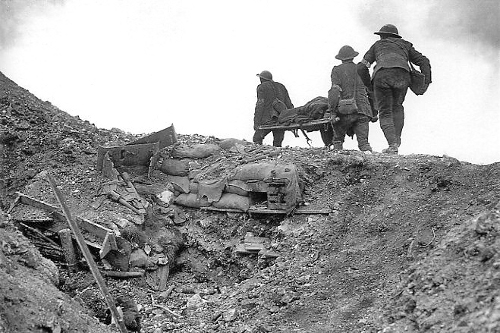5 × 55 × 555 = 152625
remains true if each digit is increased by 1:
6 × 66 × 666 = 263736
5 × 55 × 555 = 152625
remains true if each digit is increased by 1:
6 × 66 × 666 = 263736
One day I was out milking the cows. Mr. Dave come down into the field, and he had a paper in his hand. ‘Listen to me, Tom,’ he said, ‘listen to what I reads you.’ And he read from a paper all about how I was free. You can’t tell how I felt. ‘You’re jokin’ me.’ I says. ‘No, I ain’t,’ says he. ‘You’re free.’ ‘No,’ says I, ‘it’s a joke.’ ‘No,’ says he, ‘it’s a law that I got to read this paper to you. Now listen while I read it again.’
But still I wouldn’t believe him. ‘Just go up to the house,’ says he, ‘and ask Mrs. Robinson. She’ll tell you.’ So I went. ‘It’s a joke,’ I says to her. ‘Did you ever know your master to tell you a lie?’ she says. ‘No,’ says I, ‘I ain’t.’ ‘Well,’ she says, ‘the war’s over and you’re free.’
By that time I thought maybe she was telling me what was right. ‘Miss Robinson,’ says I, ‘can I go over to see the Smiths?’ — they was a colored family that lived nearby. ‘Don’t you understand,’ says she, ‘you’re free. You don’t have to ask me what you can do. Run along, child.’
And so I went. And do you know why I was a-going? I wanted to find out if they was free too. I just couldn’t take it all in. I couldn’t believe we was all free alike.
Was I happy? Law, miss. You can take anything. No matter how good you treat it — it wants to be free. You can treat it good and feed it good and give it everything it seems to want — but if you open the cage — it’s happy.
— Former slave Tom Robinson, 88, of Hot Springs, Ark., interviewed by the Federal Writers’ Project for the Slave Narrative Collection of 1936-38

The standard braid has a curious property: If we remove any one of the three strands, the other two are seen to be unconnected. If we remove the black strand above, the blue and red strands simply snake along one above the other. Similarly, removing the red or the blue strand reveals that the remaining strands are not braided together.
See Borromean Rings.

“An adventure is only an inconvenience rightly considered. An inconvenience is an adventure wrongly considered.” — G.K. Chesterton, “On Running After One’s Hat,” 1908
This litigious humour is bad enough: but there is one character still worse — that of a person who goes into company, not to contradict, but to talk at you. This is the greatest nuisance in civilised society. Such a person does not come armed to defend himself at all points, but to unsettle, if he can, and throw a slur on all your favourite opinions. If he has a notion that anyone in the room is fond of poetry, he immediately volunteers a contemptuous tirade against the idle jingle of verse. If he suspects you have a delight in pictures, he endeavours, not by fair argument, but by a side-wind, to put you out of conceit with so frivolous an art. If you have a taste for music, he does not think much good is to be done by this tickling of the ears. If you speak in praise of a comedy, he does not see the use of wit: if you say you have been to a tragedy, he shakes his head at this mockery of human misery, and thinks it ought to be prohibited. He tries to find out beforehand whatever it is that you take a particular pride or pleasure in, that he may annoy your self-love in the tenderest point (as if he were probing a wound) and make you dissatisfied with yourself and your pursuits for several days afterwards. A person might as well make a practice of throwing out scandalous aspersions against your dearest friends or nearest relations, by way of ingratiating himself into your favour. Such ill-timed impertinence is ‘villainous, and shows a pitiful ambition in the fool that uses it.’
— William Hazlitt, “On the Conversation of Authors,” 1820
There are exactly 10! seconds in six weeks.

Three nightmare glimpses of World War I:
The first experience I had of rotting bodies had been at Serre, where, as a battalion, we dealt with the best part of a thousand dead who came to pieces in our hands. As you lifted a body by its arms and legs they detached themselves from the torso, and this was not the worst thing. Each body was covered inches deep with a black fur of flies which flew up into your face, into your mouth, eyes and nostrils, as you approached. The bodies crawled with maggots. … We stopped every now and then to vomit. … The bodies had the consistency of Camembert cheese. I once fell and put my hand through the belly of a man. It was days before I got the smell out of my hands.
— British lieutenant Stuart Cloete on a burial party after the Somme, from his autobiography A Victorian Son
At the Epéhy crossroads, we found a huge cat squatting on the chest of a dead German, eating his face. It made us sick to see it, and I sent two men to chase it away. As they approached it sprang snarling at them, but they beat it down with their rifles and drove it into the ruined houses. Then we covered the body with a sack, and went on … [Later] we saw the sack we had thrown over the dead Jerry heaving up and down, and there was pretty pussy, still rending and tearing the body; so we shot it and continued our march to Longavesnes.
— From the diary of British lieutenant Edwin Vaughan of the Royal Warwickshire Regiment, April 1917
One evening, whilst on patrol, Jacques saw some rats running from under the dead men’s greatcoats, enormous rats, fat with human flesh. His heart pounding, he edged towards one of the bodies. Its helmet had rolled off. The man displayed a grimacing face, stripped of flesh; the skull bare, the eyes devoured. A set of false teeth slid down on to his rotting jacket, and from the yawning mouth leapt an unspeakably foul beast.
— A French soldier, quoted in John Ellis’ Eye-Deep in Hell, 1989

Here are seven pennies, all heads up. In a single move you can turn over any four of them. By repeatedly making such moves, can you eventually turn all seven pennies tails up?
An 1873 arrest report by Arizona sheriff George Tyng, quoted in Case and Comment, 1934:
Received the within process Arizona City, Jan. 1873 and served same by arresting defendant at Ehrenberg, A.T., Jan. 31, 1873, but as defendant had no money and I was broke myself and the county dont pay cash in advance, and no steamboat around and no calaboose here and defendant wouldn’t walk down to Yuma all alone by himself and I wouldn’t walk down with him and as he wouldn’t stay arrested unless I boarded him which I had no money for to do, and as he gave up the coat (value .45 cents currency — estimated) and said he never stole it but Bryson gave it to him in presence of witnesses and that Bryson was a damned liar anyhow, and not knowing what to do with him, I did nothing more to him up to date beyond giving him excellent moral advice which he assured me was entirely unnecessary in his case, his life having been blameless and his reputation spotless as he could prove by the best men in Nevada and Idaho but have allowed him to run at large until a more favorable season when a steamboat happens to be here, and will take scrip for his passage to Yuma and present the bill to Supervisors themselves, which is nearly all I have done toward serving within process, though I would make return of the Balance were this process bigger on the back.
Fees — Balance of what coat sells for after paying Justice fees.
George Tyng,
Sheriff of Yuma County,
Arizona